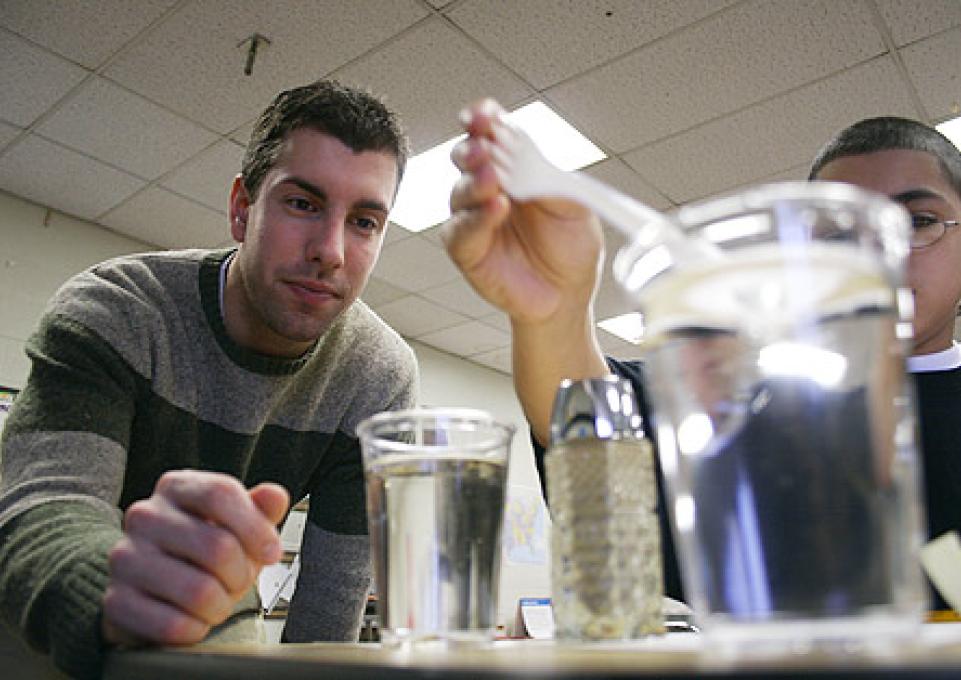
On any given Tuesday or Thursday afternoon, you'll find tweens and teens on the Buffalo State campus dreaming of becoming doctors, engineers, chemists, and computer programmers.
The seventh- through 12th-graders come to campus for tutoring in math and science-related courses through Buffalo State’s Science Technology Entry Program (STEP), which is geared toward economically disadvantaged and minority students. Along the way, they also get an early taste of college.
And that sample pays off. Approximately 95 percent of participants in STEP—now in its 25th year—have attended college, and 65 percent have pursued postsecondary education in engineering, chemistry, law, medicine, biology, and computer science. Another 20 percent have gone on to pursue postsecondary education in various other disciplines.
The New York State Education Department just awarded Buffalo State $172,624 to fund the program for the 2011-2012 school year, in which 125 students in Western New York will participate.
Through STEP, students receive tutoring and study-skill instruction from sophomores through graduate students alongside degreed public school teachers. The participants also attend workshops that help them prepare for the SAT, fill out college admissions forms, and apply for financial aid.
Along with trying to motivate students to choose careers in math, science, and technology, one of STEP’s goals is get students adequately prepped for college in general.
“We want students to go to college and hit the ground running,” said Darryl Carter, STEP director.
Travell Scales, now 25, was able to do that. Scales started in STEP when he was in the seventh grade and stayed with it until he graduated from Grover Cleveland High School. He said the relationships he formed with his tutors helped him not only understand what college life looks like, but also provided him with existing friendships when he enrolled at Buffalo State as a freshman.
“The tutors looked like they were having fun as college students,” Scales said. “They were good roles models for showing us what college is about.”
Although Scales said he had always been good at math and science, it got tougher for him when he got into high school algebra. “I don’t think I would have passed without STEP,” Scales said.
He said the personalized attention and small group of students—between 30 and 35—felt less structured and serious than school, but still offered plenty of learning opportunities.
Scales earned a bachelor’s degree in social work from Buffalo State and is completing his master’s in higher education administration. He hopes to become a dean of students some day.
“Without this program,” Scales said. “I absolutely would not have gone to college.”
